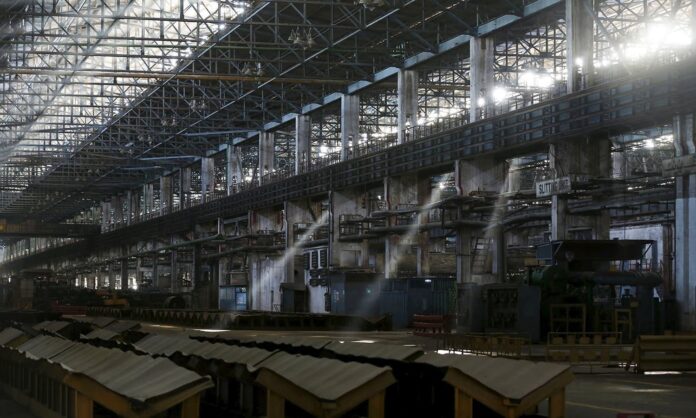ISLAMABAD: Pakistan’s domestic steel industry faces an uncertain future as large-scale smuggling operations continue to cripple the sector. The Pakistan Association of Large Steel Producers (PALSP) has sounded the alarm, urging the government to take immediate action to save this vital economic pillar, with billions of rupees in investments hanging in the balance.
The smuggling of steel bars from neighboring Iran and Afghanistan has reached alarming levels, posing a significant threat to Pakistan’s steel industry. The association estimates that around 500,000 metric tons of steel are smuggled annually, resulting in an astounding loss of tax revenue amounting to 25 billion rupees. “The scale of smuggling we are witnessing is unprecedented and has reached a critical level,” warns Wajid Bukhari, Secretary General of PALSP adding “If immediate action is not taken, irreparable damage will occur to our industry.”
Despite persistent appeals from PALSP to the government for decisive action, their pleas have largely gone unanswered. Authorities have conducted temporary raids and cosmetic operations that fail to address the root causes of the problem. In response to the gravity of the situation, the Prime Minister personally intervened, forming an inter-agency committee with the task of devising a comprehensive strategy to combat smuggling. Additionally, the Federal Board of Revenue (FBR) launched a massive crackdown on smuggling operations across various locations. Unfortunately, these efforts have provided only temporary relief and have not offered a lasting solution.
During a recent meeting of the Senate Standing Committee on Finance and Revenue, Senators exposed the involvement of “official patronage” in smuggling activities, revealing the extent of corruption. Shockingly, fixed rates for smuggled goods were uncovered, with exorbitant fees charged for truckloads of illicit steel ranging from Rs 500,000 to Rs 600,000. Furthermore, each checkpoint reportedly accepted bribes ranging from Rs100,000 to Rs 300,000 for smooth clearance. The influx of illicit steel flooded the market, with dealers openly offering non-tax-paid smuggled steel at significantly lower rates.
PALSP reveals that smuggled steel currently accounts for approximately 15% of the country’s long steel domestic manufacturing capacity. This illicit inflow of steel not only undermines the local market but also jeopardizes the viability of steel producers, leading to widespread job losses and unemployment. The consequences of rampant smuggling are dire, as the closure of the domestic steel industry would have far-reaching ramifications for Pakistan’s economy as a whole. With billions of rupees in investments at stake, the livelihoods of countless workers are hanging in the balance, and the industry faces irrecoverable damage.
Deeply concerned about the industry’s fate, PALSP has presented a series of recommendations to combat the smuggling crisis. “To protect our steel industry, immediate measures are required,” emphasizes Bukhari. They propose restricting the import of steel exclusively to sea routes, ensuring tighter control and supervision. The installation of additional checkpoints equipped with state-of-the-art scanning devices and equipment is also advised to enhance security measures. PALSP advocates for digitalization, replacing manual processes to improve efficiency and reduce opportunities for corruption. Moreover, the association emphasizes the urgent need to deploy more personnel from the Frontier Corps (FC), Police, and Army at checkpoints to strengthen enforcement efforts. To discourage smuggling, PALSP calls for strict penalties not only for those directly involved in the illegal trade but also for those complicit in turning a blind eye to these activities.
If immediate and comprehensive action is not taken, the consequences for Pakistan’s steel industry will be catastrophic. The government must act swiftly to save this vital sector, protect billions of rupees in investments, and secure the livelihoods of thousands of workers.
The plight of the steel industry has become a national concern, with experts warning that the closure
























